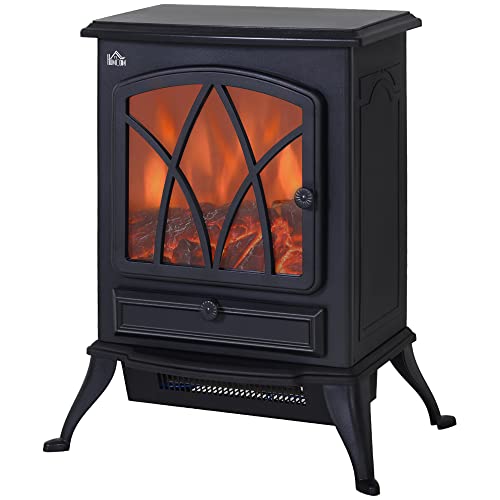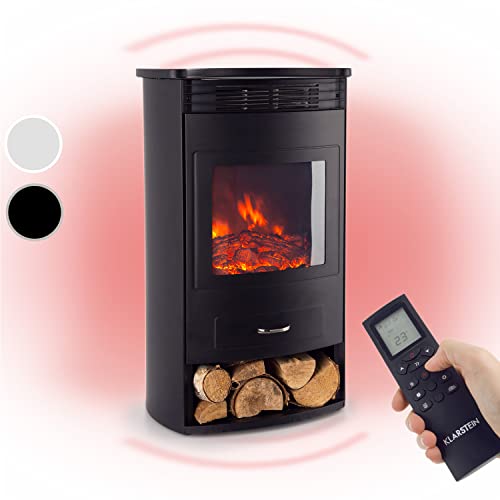10 Sites To Help You Develop Your Knowledge About Fireplace Surround
페이지 정보

본문
 Choosing a Fireplace Surround
Choosing a Fireplace Surround If you're using a fireplace for aesthetics or warmth, the perfect surround can give your living room personality. It can be difficult to pick a fireplace surround which is safe and complies with the code.
If you're using a fireplace for aesthetics or warmth, the perfect surround can give your living room personality. It can be difficult to pick a fireplace surround which is safe and complies with the code.Fortunately, these custom built surrounds are made of non-combustible materials and adhere to the National Fire Code. They look great in any home style.
Simple Concrete Surround with Marble Slabs
A fireplace surround can be a focal point of a room and it can add warmth and charm. It can be made from various materials and crafted to match various styles of design. It is important to think about the design of the room and the budget prior to deciding on the design of a fireplace surround.
Marble fireplace surrounds offer an elegant look that is compatible with many different styles of design. They can be combined with rustic woods as well as modern metals to create a unique, contemporary design. Marble is fairly easy to maintain and can stand up to extreme temperatures, making it a great choice for a fireplace surround.
Stone is a classic material for fireplace surrounds that has a timeless look and works in many homes. It can be carved or etched to create a modern look, or left untouched to give it a classic appearance. Stacked stone veneers may also be used to add depth and texture to the interior of a room.
Granite is a popular option for modern surrounds for fireplaces. It's tough and able to be able to withstand heat well. It is also available in a range of patterns and colors, which means it can be used to create a variety of styles. Quartzite is another durable option that can be shaped and molded to fit a modern fireplace surround.
Installing a concrete enclosure for a fireplace might be possible for DIYers. While it may seem daunting, this project can actually be simpler than you think if you plan ahead and collaborate with a professional to ensure that the structure is strong enough.
A professional is also recommended when building a marble fireplace surround, as it requires special attention to avoid damage. A carpenter with experience can help you to avoid costly mistakes.
If you're planning on using tile for your fireplace's surround, ensure it's approved for high-temperature use. You can typically find this information on the package or ask an employee at a home improvement shop.
Leaning Frame Surround
The fireplace surround is a vital design element that can transform the whole space. It's not just meant to look attractive, but also serves a practical purpose, which is to protect the wall behind the fireplace from fire damage and to reflect heat back into the room. It's available in a variety of materials and can be customised to suit any style or decor.
The right choice of material is crucial for achieving a well-planned aesthetic. Concrete is an excellent choice due to its durability and non-flammable. It also offers an appealing visual appeal thanks to its natural texture and color. It's typically placed into a mold giving you the ability to design a unique shape for your fireplace surround.
When designing your leaning frame, make sure to add layers. This makes the piece appear more organized than if it were just randomly placed. Leaning frames can be risky If you're planning to display heavy objects, such as lamps or vases, put a small piece of rubber drawer liner underneath the base to prevent them from sliding or damaging surfaces.
Consider adding a wooden plank to the bottom of a concrete or marble surround. This will help to keep it in place. It will also help in reducing the weight of the object and prevent it from shifting while you enjoy a good glass of wine or coffee in front of your fireplace.
Once you've chosen the material you'll use for your leaning frame surround, it's time to start making the actual piece. First, mark the wall you're building with the dimensions of your surround and use a sander to cut cleats on each of these marks. Make sure that the cleat on top is at least one foot longer than the shelf.
Attach the brackets to the wall fireplace. Make sure the bolts are inserted into the backerboard and into the stud. Making the screw holes in advance is necessary if needed. Then, you can temporarily fix the mantel to the backer board. Screw the mantel with the lag bolts (2-4 bolts per stud). Make sure the bolts are long and sturdy enough to cover the thickness of the backerboard, plus 2/3 of the depth of the mantel.
Black Firebox Surround
ethanol fireplace surrounds play a functional and decorative function. They shield walls from damage from heat, reflect heat back into the room and can make a fireplace an eye-catching feature in the space. The most common materials used for fireplace surrounds are wood and metal. Metal surrounds are required by the building code to protect nearby combustible materials or they can improve the look of a fireplace.
The fireplace in this modern living area has an all-black firebox with white marble accents. The stone is a more expensive material that requires more care than a wooden mantel but it provides a dramatic and striking design element to the space. The black finish also brings to the dark hues of the furniture and the wood flooring to create a seamless appearance.
While you might associate concrete with sidewalks and driveways, it's a very flexible and attractive material for fireplace surrounds. It can be poured on top and shaped into any shape, giving you a wide range of design possibilities. This concrete surround was shaped to a curved profile. It has an elegant and contemporary look that is in contrast to the darker hues of the brick wall and floor.
Another popular material for fireplace surrounds is wood, which is available in a variety of colors and textures to fit into any decor. Wooden surrounds can be crafted in any color to fit your hearth pad. They are lighter and less expensive than masonry surrounds. Most wooden surrounds can accommodate decoration for your mantel, including vases and lamps.
Certain wood surrounds come with a faceplate which covers the top of the mantel and houses fireplace doors. This plate can be attached to the mantel with hinges or decorative fasteners that mimic the look of iron.
When selecting a wood mantel or metal fireplace surround, it is important to consider the height of your chimney. To stop a fire from spreading into your home, building codes specify minimum clearances. This distance will vary based on the type of fireplace and may also vary from country to country or from state to state.
Simple Wood Surround
There are many options for surrounds to give your fireplace a classic look. Some surrounds are made from solid oak, while others include stone legs with oak or pine mantels. You can also find pine or oak fire surrounds that are designed to be a simple and affordable option.
Many people opt to buy a pre-made wooden fireplace surround since it's an inexpensive method of getting the look that they want without having to pay for the services of a carpenter. Some pre-made pine surrounds come with a variety of finishes and colors, allowing you to make them fit with your existing decor.
A handcrafted wood fire surround constructed from top quality oak is also popular. This can be stained a light oak color or left untreated so that the natural golden brown of the wood is visible. This fireplace surround can be used with either gas or wood electric fireplaces. It is available in two styles: flat or arched.
If you have a bit more experience in DIY home improvement projects, there's a wealth of tutorials available online to assist you in creating your own wood fire surround. One example is this comprehensive step-by-step tutorial from H2O Bungalow which teaches you how to make an authentic wood surround using pine.
The tutorial teaches you how to build first the horizontal pilasters and then the vertical pilasters that will support the mantel. After these are built you can put in the mantel. The tutorial will show you how to install the crown molding, which will cover any gaps between the cladding of the wall and the wall that surrounds it.
It is essential to adhere to the local fire code when you install a wooden surround around a fireplace. It is recommended to keep the surround at least 6 inches away from the edge of the opening. Use a non-flammable glue attach the decorative molding to the surround and ensure it remains in the correct position.
- 이전글Are You Able To Research Electric Fireplace Wall Mounted Online 24.11.15
- 다음글You'll Never Guess This Lawyer Injury Accident's Benefits 24.11.15
댓글목록
등록된 댓글이 없습니다.

